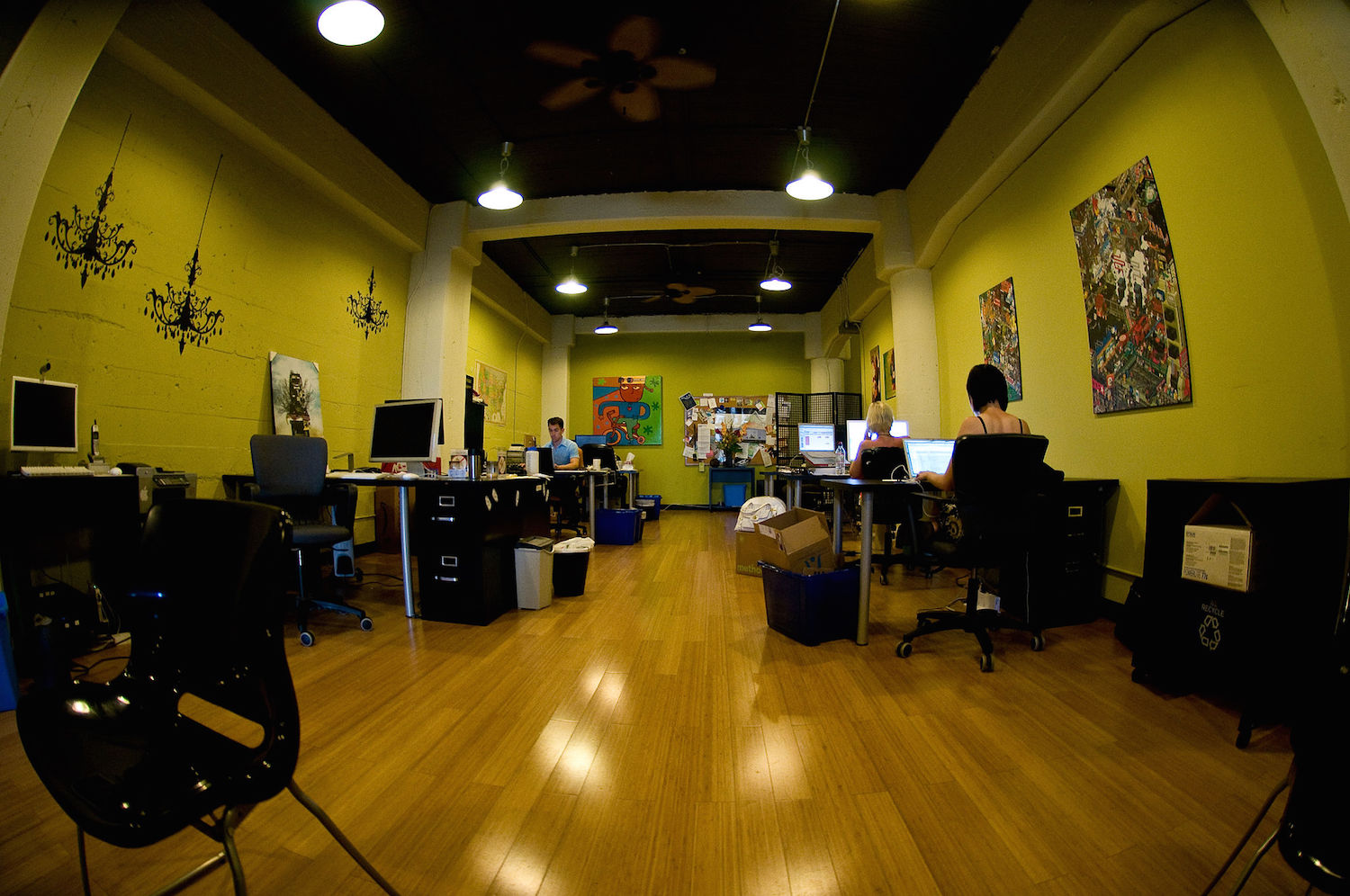ImpactAlpha, October 21 – Entrepreneurship drives economic renewal, but how can cities foster entrepreneurship? The folks at Revolution and The Rise of the Rest Fund have a suggestion: create a physical space. “The most successful emerging ecosystems recognize that scaling a startup requires network density — being in close, regular contact with other creators who share a willingness to explore what is possible,” notes a recent report by the firm, the second in its ‘Playbook’ series. The Revolution team has identified ten of the most innovative physical hubs it has encountered on its cross country tours over the past five years and broken them down into four models.
Anchor tenant
Corporations and other local-rooted organizations can lend capital and credibility to establish a hub. Example: The Green Bay Packers, along with Microsoft, created the newly opened TitletownTech, featuring an innovation lab and venture fund, next to Lambeau Field In Green Bay, Wisc.
Innovation district
Many cities have established districts aimed at fostering entrepreneurial activity. But business and nonprofit leaders can also play a key role. Example: Phoenix’s once empty warehouse district is now teeming with 130 startups and creative ventures, after the city made infrastructure improvements, including connecting it to light rail, and local success story WebPT relocated to the district.
Vertically integrated
Physical spaces that cater to different types and stages of businesses can fuel collaboration. Example: Each of the ten floors in Chattanoga’s The Edney is tailored a specific need: startup acceleration, STEM education, coworking, offices for local businesses and the city’s tech staff, and public event space.
Work-live-play
Tech companies like Google offer perks and amenities so employees don’t need to leave campus. Some startups hubs take a similar approach. Example: Lake Nona, a 17-square mile residential and commercial development in Orlando, Fla., was intentionally designed to support business, research, education and health. The Wellness Home built on Innovation and Technology (WHIT), for example, gives startups from around the world a place to test their ideas and products.











